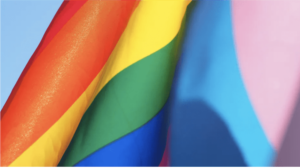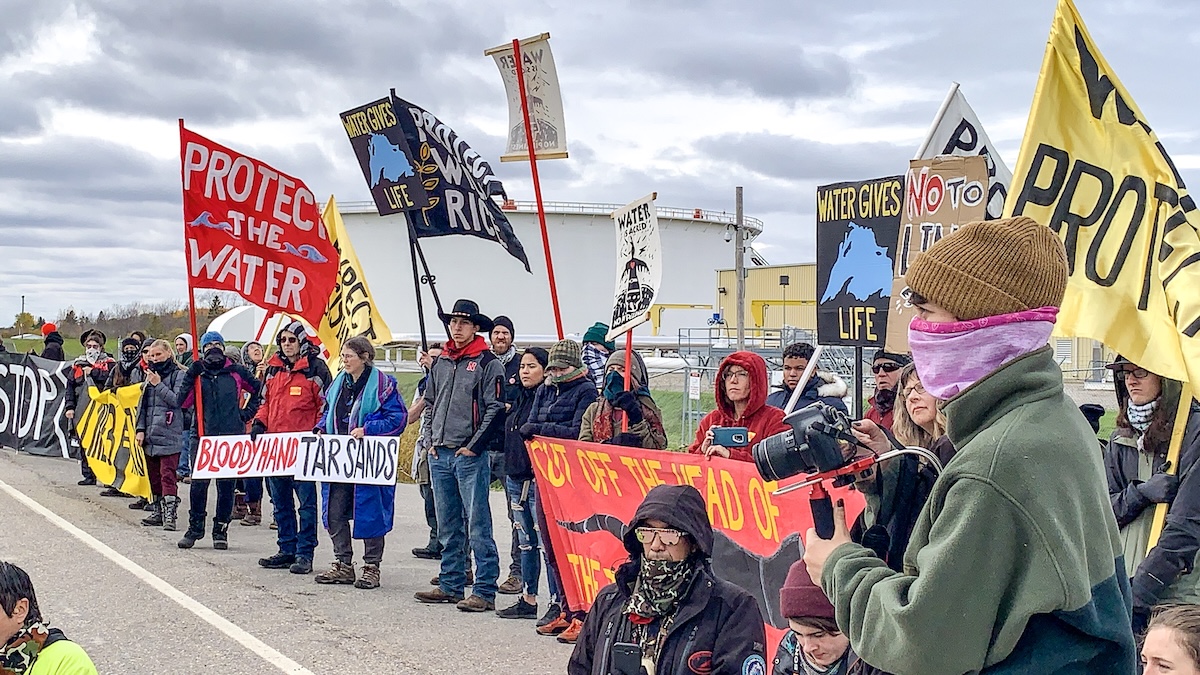The Human Rights Campaign published the following release in an effort to break down pressing issues during Pride month in 2021.
 With an unprecedented number of anti-LGBTQ measures sweeping through state legislatures across the country, 2021 has officially surpassed 2015 as the worst year for anti-LGBTQ legislation in recent history, according to updated tracking and analysis by the Human Rights Campaign (detailed breakdown below). The previous record — set six years ago in 2015, when 15 anti-LGBTQ bills were enacted into law — was broken on Friday, as the seventeenth anti-LGBTQ bill was enacted into law. In addition, 11 anti-LGBTQ bills are on governors’ desks awaiting signature or veto and several more are continuing to move through state legislatures across the country.
With an unprecedented number of anti-LGBTQ measures sweeping through state legislatures across the country, 2021 has officially surpassed 2015 as the worst year for anti-LGBTQ legislation in recent history, according to updated tracking and analysis by the Human Rights Campaign (detailed breakdown below). The previous record — set six years ago in 2015, when 15 anti-LGBTQ bills were enacted into law — was broken on Friday, as the seventeenth anti-LGBTQ bill was enacted into law. In addition, 11 anti-LGBTQ bills are on governors’ desks awaiting signature or veto and several more are continuing to move through state legislatures across the country.
The rights of LGBTQ people — and especially transgender people — across the country are being systematically threatened and undermined by national anti-LGBTQ groups coordinating with anti-equality lawmakers to wage an unprecedented war on the LGBTQ community. In fact, some of these bills are similar to or even worse than anti-LGBTQ legislation that has been rejected in previous years, including the Indiana religious refusal bill of 2015 and North Carolina’s infamous HB2. Bills that have become law so far this year range from making it a felony to provide transgender youth with life saving health care to banning transgender girls from participating in sports to erasing LGBTQ people from school curriculum to granting broad licenses to discriminate against LGBTQ people. This crisis cannot be ignored and necessitates concrete action from all those with the ability to speak out. These bills are not only harmful and discriminatory, but also represent a failure in our democracy and the commitment elected officials make to protect and serve their constituents. Now is not the time for reluctance or passivity, it is time to take urgent action to protect the basic rights and humanity of LGBTQ people in America.
The wave of anti-LGBTQ legislation — a coordinated push led by national anti-LGBTQ groups, not local lawmakers – is part of a broader strategy to score political points with the conservative base by curtailing the rights of LGBTQ people and specifically trans youth — under the guise of responding to nonexistent and baseless threats. These bills represent a cruel effort to further stigmatize and discriminate against LGBTQ people across the country, specifically trans youth who simply want to live as their true selves and grow into who they are.
Breakdown of Anti-LGBTQ Legislation Sweeping State Legislatures in 2021
So far in 2021, seventeen anti-LGBTQ bills have been enacted into law surpassing 2015 as the worst year for anti-LGBTQ legislation in recent history (when 15 anti-LGBTQ bills were enacted into law), including:
7 anti-trans sports bans in Arkansas, Alabama, Tennessee, Mississippi, Montana, and West Virginia
4 religious refusal bills, including in Arkansas, Montana, and South Dakota
2 anti-LGBTQ education bills in Tennessee and Montana
1 anti-trans medical care ban bill in Arkansas
1 sham “hate crimes” bill in Arkansas
1 anti-all comers bill in North Dakota
1 anti-trans birth certificate bill in Montana
With seventeen bills now signed into law, states have enacted more anti-LGBTQ laws this year than in the last three years combined (anti-LGBTQ bills enacted in previous years include 2 bills in 2018, 7 bills in 2019, and 4 bills in 2020).
More than 250 anti-LGBTQ bills have been introduced in state legislatures in 2021, including:
At least 35 bills that would prohibit transgender youth from being able to access best-practice, age-appropriate, gender-affirming medical care
At least 69 bills that would prohibit transgender youth (and in some cases college students) from participating in sports consistent with their gender identity
At least 43 bills that would allow people to assert a religious belief as justification for failing to abide by the law or provide services to people of whom they disapprove
At least 15 bills that would prohibit transgender people from having access to restrooms or locker rooms consistent with their gender identity
Wide range of business and advocacy groups, athletes oppose anti-trans legislation
More than 90 major U.S. corporations have stood up and spoke out to oppose anti-transgender legislation being proposed in states across the country. New companies like Facebook, Pfizer, Altria, Peloton, and Dell join companies like Amazon, American Airlines, Apple, AT&T, AirBnB, Google, Hilton, IBM, IKEA, Microsoft, Nike, Paypal, Uber, and Verizon in objecting to these bills. Four of the largest U.S. food companies also condemned “dangerous, discriminatory legislation that serves as an attack on LGBTQ+ individuals, particularly transgender and nonbinary people,” and the Walton Family Foundation issued a statement expressing “alarm” at the trend of anti-transgender legislation that has recently become law in Arkansas.
The nation’s leading child health and welfare groups representing more than 7 million youth-serving professionals and more than 1000 child welfare organizations released an open letter calling for lawmakers in states across the country to oppose dozens of bills that target LGBTQ people, and transgender children in particular.
A fight driven by national anti-LGBTQ groups, not local legislators or public concern
These bills come from the same forces that drove previous anti-equality fights by pushing copycat bills across state houses — dangerous, anti-LGBTQ organizations like the Heritage Foundation, Alliance Defending Freedom (designated by Southern Poverty Law Center as a hate group), and Eagle Forum among others. For example, Montana’s HB 112, the first anti-transgender sports bill to be passed in 2021 through a legislative chamber in any state, was worked on by the Alliance Defending Freedom.
Trans equality is popular: Anti-transgender legislation is a low priority, even among Trump voters
A new PBS/NPR/Marist poll states that 67% of Americans, including 66% of Republicans, oppose the anti-transgender sports ban legislation proliferating across 30 states.
In a 10-swing-state poll conducted by the Human Rights Campaign & Hart Research Group last fall:
At least 60% of Trump voters across each of the 10 swing states say transgender people should be able to live freely and openly.
At least 87% of respondents across each of the 10 swing states say transgender people should have equal access to medical care, with many states breaking 90% support.
When respondents were asked about how they prioritized the importance of banning transgender people from participating in sports as compared to other policy issues, the issue came in dead last, with between 1% and 3% prioritizing the issue.
Another more recent poll conducted by the Human Rights Campaign & Hart Research Group revealed that, with respect to transgender youth participation in sports, the public’s strong inclination is on the side of fairness and equality for transgender student athletes. 73% of voters agree that “sports are important in young people’s lives. Young transgender people should be allowed opportunities to participate in a way that is safe and comfortable for them.”
States that pass anti-transgender legislation suffer economic, legal, reputational harm
Analyses conducted in the aftermath of previous divisive anti-transgender bills across the country, like the bathroom bills introduced in Texas and North Carolina and an anti-transgender sports ban in Idaho, show that there would be or has been devastating fallout.
The Idaho anti-transgender sports bill that passed was swiftly suspended by a federal district court. The National Collegiate Athletic Association (NCAA) came out against the Idaho bill and others like it and subsequently moved planned tournament games out of Idaho.
The Associated Press projected that the North Carolina bathroom bill could have cost the state $3.76 billion over 10 years.
During a fight over an anti-transgender bathroom bill in 2017, the Texas Association of Business estimated $8.5 billion in economic losses, risking 185,000 jobs in the process due to National Collegiate Athletic Association (NCAA) and professional sporting event cancellations, a ban on taxpayer funded travel to those states, cancellation of movie productions, and businesses moving projects out of state.


